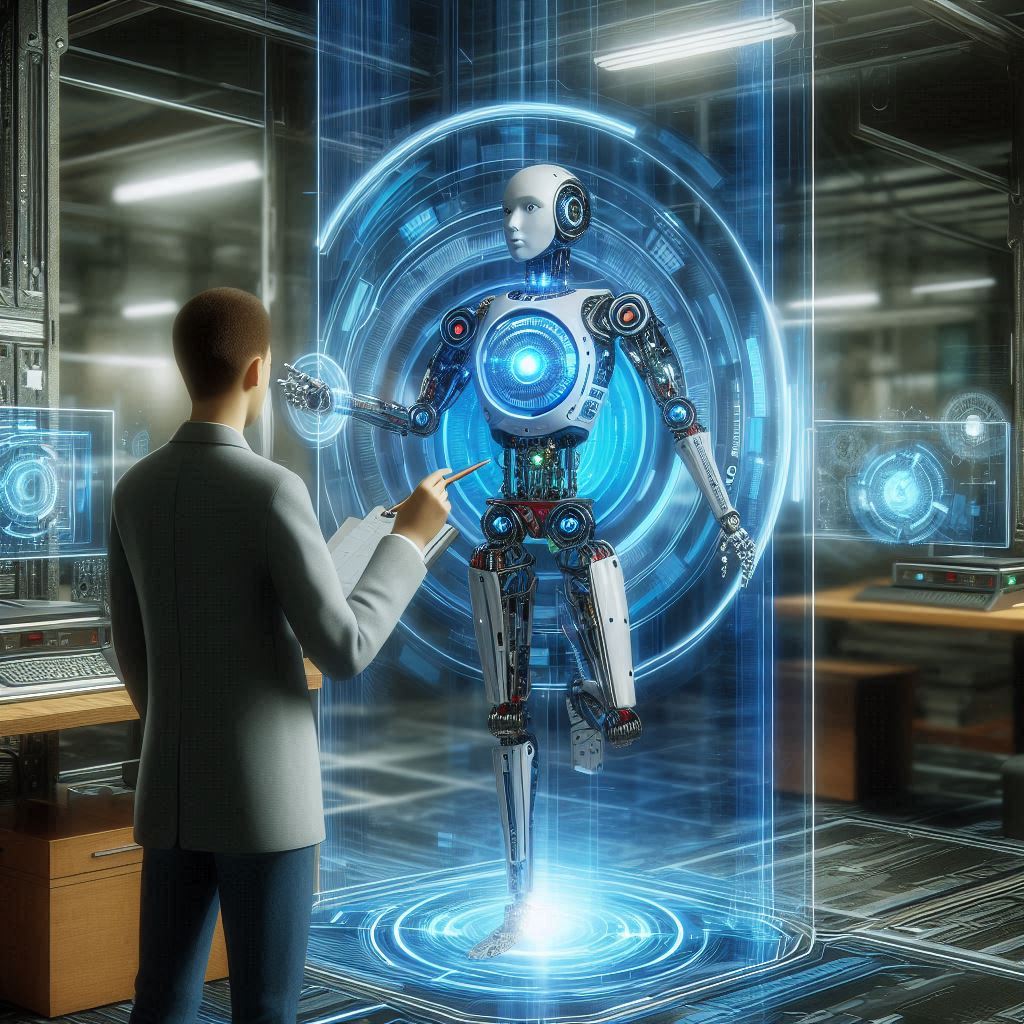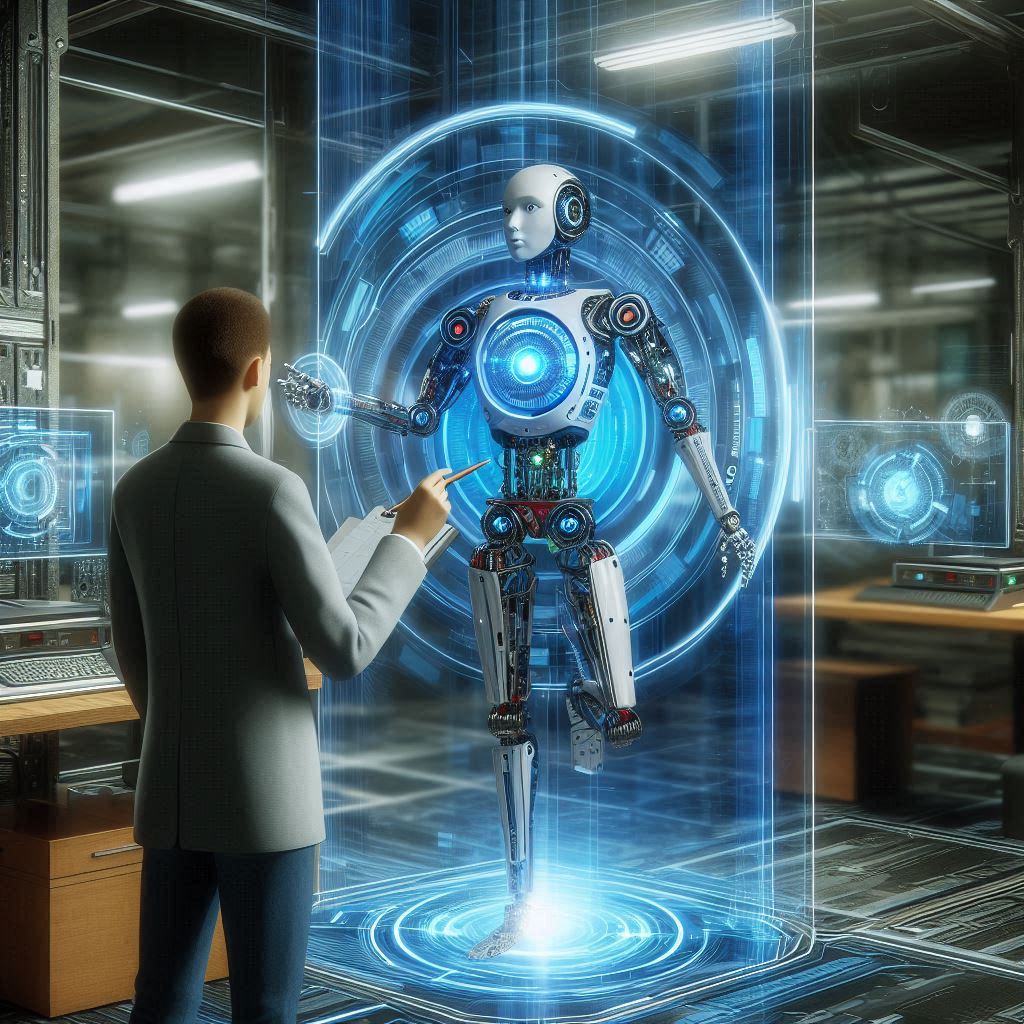Table of Contents
AI Innovations ,Artificial Intelligence – (AI) at the Core of Change
Artificial Intelligence (AI) has revolutionized the way we live, work, and interact with technology. From simplifying mundane tasks to solving complex problems, AI has become a cornerstone of progress. By 2025, innovations in AI have touched nearly every industry, from healthcare to finance, enabling extraordinary possibilities. However, these advancements come with challenges, including ethical dilemmas, privacy concerns, and bias in decision-making systems. This blog explores the latest breakthroughs in AI, its transformative impact, ethical implications, and what lies ahead in the future of AI development.

Advancements in Artificial Intelligence
AI technology is evolving rapidly, and recent innovations are pushing the boundaries of what was once thought possible. Here are some groundbreaking developments:

- Generative Pre-trained Transformers (GPTs) and Beyond: Natural Language Processing (NLP) has reached new heights with AI models like GPT, enabling machines to understand and generate human-like text. These models are now being used in industries such as education (e.g., tutoring systems), content creation, and customer support automation.Beyond NLP, advancements in multimodal AI (which combines text, image, audio, and video inputs) have enabled machines to interpret complex data holistically. For example, AI is now capable of analyzing medical images alongside patient histories to improve diagnostic accuracy.
- AI in Robotics: Robotics integrated with AI is reshaping industries like manufacturing, logistics, and healthcare. Robots powered by AI are not only capable of performing repetitive tasks but are also being designed to assist in surgeries, rehabilitation, and elder care. Boston Dynamics’ robots, for example, demonstrate incredible agility and problem-solving capabilities.
- Reinforcement Learning: Reinforcement learning algorithms are training AI systems to make decisions in complex and uncertain environments. Applications range from autonomous vehicles to AI-driven financial trading systems, where adaptability and efficiency are critical.
- AI in Creativity: AI has entered the creative domain, generating art, music, and literature. It’s being used to design fashion, produce movie scripts, and even compose symphonies. AI tools like DALL-E create stunning visual content, while music AI systems assist artists in composing melodies.
Impact Across Industries
AI is influencing nearly every sector, transforming workflows, enhancing decision-making, and unlocking new potential. Let’s explore its impact in some key industries:

- AI in Healthcare: AI-driven solutions are revolutionizing patient care, from personalized treatment plans to real-time monitoring using wearable devices. Algorithms can detect diseases like cancer at earlier stages by analyzing medical images, while telemedicine powered by AI ensures access to healthcare in remote areas.
- Finance: AI is enabling fraud detection, algorithmic trading, and personalized financial management. Chatbots in banking improve customer experience, while machine learning models help detect unusual transaction patterns to prevent cybercrime.
- Education: AI-powered tools are making education more accessible and personalized. Adaptive learning platforms tailor lessons to individual students’ needs, while virtual tutors and AI translators bridge language barriers in classrooms worldwide.
- Entertainment: Recommendation engines powered by AI help streaming platforms like Netflix and Spotify curate personalized content for users. AI-generated content, including movies and games, is pushing the boundaries of creativity in entertainment.
- Agriculture: Smart farming technologies use AI to optimize crop yields by analyzing weather patterns, soil health, and pest behavior. Drones equipped with AI are used for planting, monitoring, and spraying.
- Retail and E-commerce: AI-enhanced systems enable personalized shopping experiences, inventory management, and automated customer support. Visual search tools allow customers to find products based on images.
Ethical AI Challenges
With great power comes great responsibility, and AI is no exception. As its applications grow, so do concerns about its ethical and societal impact:

- Bias in Algorithms: Artificial intelligence systems can inherit biases from their training data, leading to unfair treatment of certain groups. For instance, biases in hiring algorithms have raised concerns about discrimination. Ensuring diversity in datasets and transparent model-building practices is critical.
- Privacy Concerns: AI-powered surveillance and data collection raise significant privacy issues. The potential misuse of artificial intelligence for monitoring individuals without consent, as seen in some facial recognition technologies, calls for stricter regulations.
- Job Displacement: While AI creates new opportunities, it also replaces roles that rely on repetitive or manual tasks. Ensuring workforce upskilling and creating jobs in AI-related fields are vital to addressing this challenge.
- Transparency and Accountability: Artificial intelligence systems often function as “black boxes,” making decisions that are difficult to interpret. This lack of transparency can lead to accountability issues, especially in critical areas like healthcare or criminal justice.
- AI and Misinformation: Tools like deepfake generators pose risks to society by enabling the spread of false information. Combatting misinformation requires collaboration between technologists, regulators, and educators.
Future Potential
AI’s journey is far from over. As the technology matures, here are some areas where we may see significant advancements:

- General AI: While current AI systems are specialized for specific tasks, researchers are working toward artificial general intelligence (AGI) that mimics human reasoning across a wide range of activities.
- AI in Sustainability: AI is being used to tackle global challenges like climate change by optimizing energy usage, improving waste management, and advancing renewable energy technologies.
- AI in Space Exploration: AI is expected to play a pivotal role in exploring distant planets, analyzing data from space missions, and even assisting in extraterrestrial colonization.
- Collaborative AI: Future AI systems will work more seamlessly alongside humans, enhancing productivity and decision-making through collaborative problem-solving.
- Ethical AI: Emphasis on developing “ethical AI” will grow, ensuring systems are fair, transparent, and designed to benefit all of humanity.
Conclusion: The Road Ahead
AI continues to redefine what’s possible, offering transformative solutions across industries and solving complex challenges. Yet, the journey is not without hurdles. Ethical concerns, transparency issues, and potential misuse highlight the need for responsible AI development and governance.
As we move forward, the focus must remain on leveraging AI’s potential to create a better, more equitable world while mitigating risks. The future of AI is a shared responsibility, and its success depends on collaboration between technologists, policymakers, and society as a whole.
Also read : The Future of Electric Vehicles


Whoa, this AI article is more groundbreaking than my attempts at origami! Its fantastic that machines are getting good at surgeries and even poetry, though Im not sure I trust an AI to choose my Netflix recommendations – I might end up watching documentaries on why pigeons are secretly running the world. The ethical concerns are hilarious, like the idea of AI bias – imagine an AI trying to understand fashion trends, itd be a disaster! But hey, if AI can help me perfect my paper airplane designs, its a win! The future looks bright, unless the AI decides it wants to start a rock band and replaces all human musicians – that would be a bummer for concerts, but great for my nap times. Lets embrace this tech, but maybe keep an eye on it, just in case it develops a quirky sense of humor and starts making absurd suggestions!
Hi, how have you been lately?
nice post
very informative and well written!